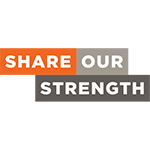Destigmatizing School Breakfast Programs
Starting the day with a healthy breakfast has been shown to improve academic achievement for students. Yet despite the widespread availability of free school breakfast, many students miss out. According to data from the Food and Nutrition Service of the USDA, less than half of the 31 million students who ate school lunch in 2017 also ate school breakfast.
There are several reasons for families to forego their child’s breakfast option. One is that cafeteria programs that serve breakfast often do so before the school day begins, earlier than buses and carpools arrive. Children may also experience stigma if school breakfast served in the cafeteria is perceived as being only for low-income students.
A solution that addresses both of these problems is serving breakfast to all students as part of the regular school day – known as Breakfast After the Bell – which has been shown to increase participation rates. By serving breakfast to every student either in the classroom or from mobile carts, schools can make sure that their students get the healthy start they need to stay focused and learn through the day.
However, most schools have not yet transitioned to Breakfast After the Bell. In a phone survey that we conducted of over 2,500 schools in six states, only 22%were using the program. We partnered with researchers at the University of Virginia and Share Our Strength, a national non-profit dedicated to ending childhood hunger, to pilot an intervention aimed at encouraging school leaders to switch their school programs from the cafeteria model to Breakfast After the Bell. During the problem discovery phase of our work, we found that most school leaders lacked feedback about their school or district’s breakfast participation rates. We also uncovered that leaders needed clearer, more actionable steps for a smooth transition to Breakfast After the Bell.
With these insights, we conducted two initial interventions in 2017—a design-based pilot and a full-scale randomized controlled trial—to encourage school leaders to offer the breakfast program that more students can access. Preliminary results indicate that neither the informational nor the social norms comparison was more likely to generate a response to our outreach materials or an application for a school breakfast startup grant. We plan to evaluate the intervention’s impact on actual school breakfast participation rates and compare the informational and social norms letter results to a control group that receives no outreach, once data for the 2017–2018 school year becomes available.
Interested in learning more about our work applying behavioral insights in education? Reach out to us at education@ideas42.org or tweet at @ideas42 to join the conversation.
Partners











